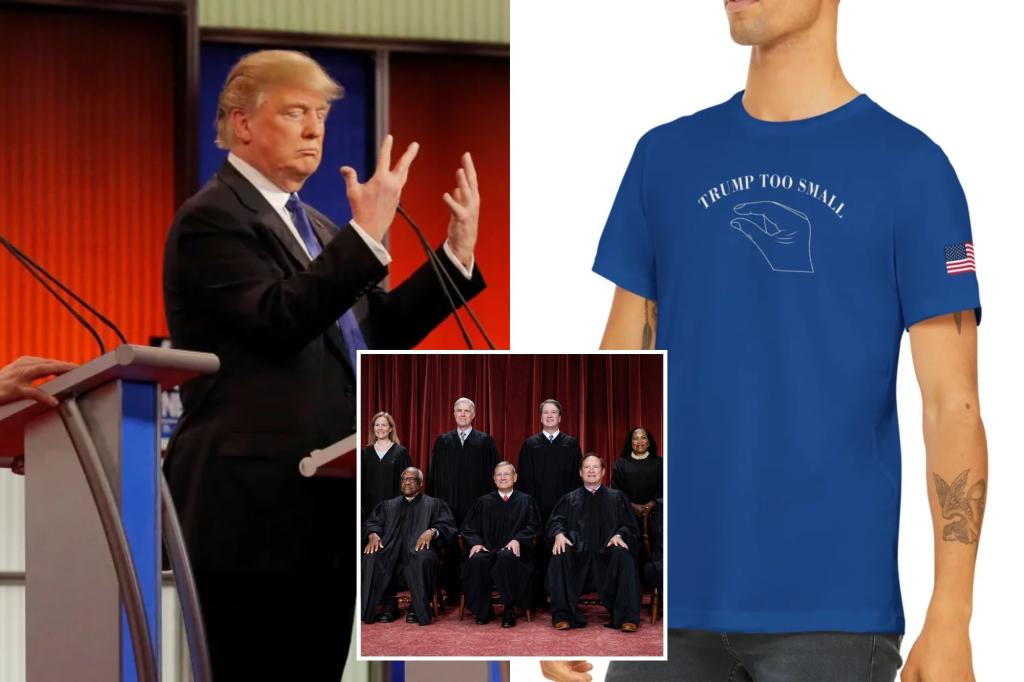The Supreme Court unanimously ruled against a California attorney’s attempt to trademark the phrase “Trump too small,” stating that the rejection did not violate his free speech rights. The attorney, Steve Elster, wanted to trademark the phrase as a reference to a comment made by Senator Marco Rubio during the 2016 Republican presidential primary mocking Donald Trump’s hand size and implying he was lacking in other areas. Justice Clarence Thomas wrote the court’s opinion, stating that there is a long-standing tradition of restricting the trademarking of names, which supports the decision to deny Elster’s application.
Several justices, including Brett Kavanaugh, Amy Coney Barrett, and Sonia Sotomayor, concurred with the decision but raised concerns about technical aspects of Thomas’ reasoning. Kavanaugh noted that even without a historical precedent, a viewpoint-neutral, content-based trademark restriction could still be constitutional. The roots of the case lie in a speech Rubio gave during the 2016 campaign, where he mocked Trump’s hand size and suggested that men with small hands could not be trusted. Trump responded in a subsequent debate, defending the size of his hands and implicitly denying any shortcomings.
Trump’s response to Rubio’s jab led to Elster’s attempt to trademark “too small,” which was ultimately rejected by the US Patent and Trademark Office. Justices expressed skepticism during oral arguments about Elster’s claim, emphasizing the long-standing tradition of restricting the use of another person’s name in a trademark. Elster had previously been denied at the Trademark Trial and Appeal Board and the DC Circuit Court of Appeals before the case reached the Supreme Court. The court is also expected to address a separate case concerning Trump’s presidential immunity from felony charges for actions taken during his time in office.
The Supreme Court’s decision regarding Elster’s trademark application highlighted the balance between trademark restrictions and free speech rights, affirming the long-standing practice of limiting the use of another person’s name in trademarks. Justices Kavanaugh, Barrett, and Sotomayor supported the ruling while acknowledging potential constitutional complexities in future cases. The origins of the case were traced back to Rubio’s comments during the 2016 campaign, where he made disparaging remarks about Trump’s physical attributes, leading to a heated exchange between the two candidates.
While Trump defended his hand size in response to Rubio’s comments, Elster’s attempt to capitalize on the controversy by trademarking a phrase using Trump’s name was ultimately thwarted by the courts. The rejection of Elster’s trademark application by the US Patent and Trademark Office, as well as subsequent denials at lower courts, set the stage for the Supreme Court’s final ruling. Justices expressed concerns during the proceedings about the implications of allowing such trademarks, highlighting the potential conflict between free speech protections and the rights of individuals to control the use of their names in commercial contexts. The case underscores the complexities of balancing intellectual property rights with constitutional principles in a modern context.


